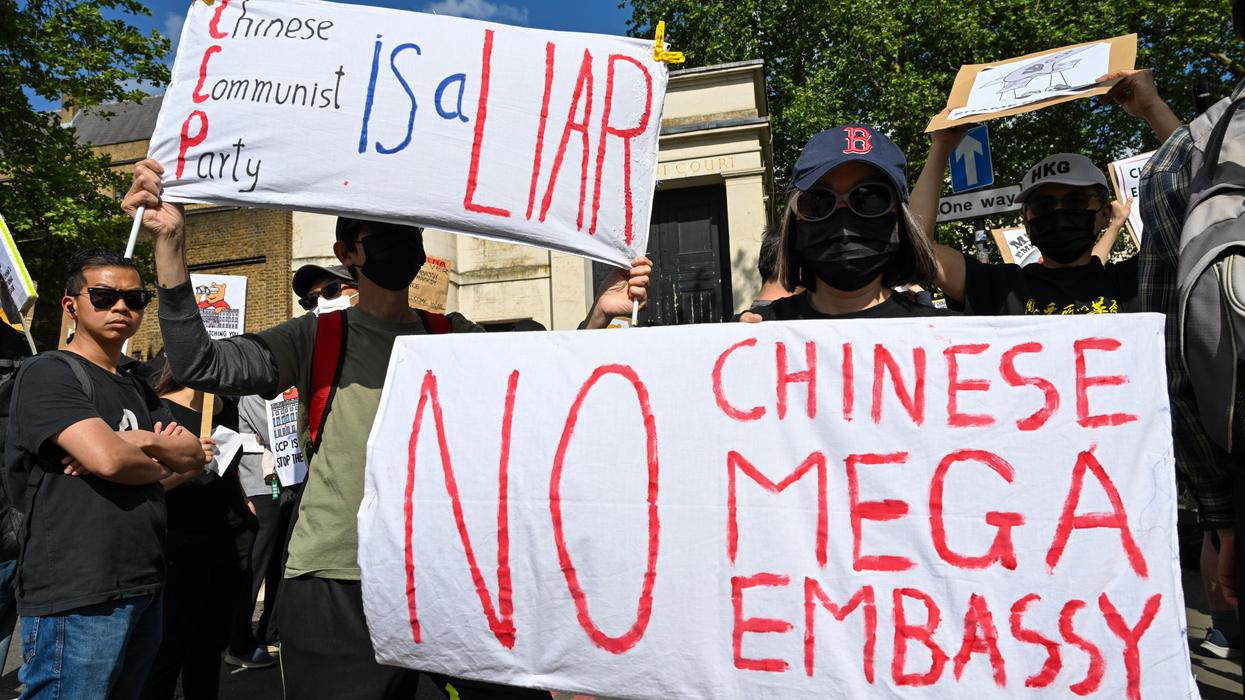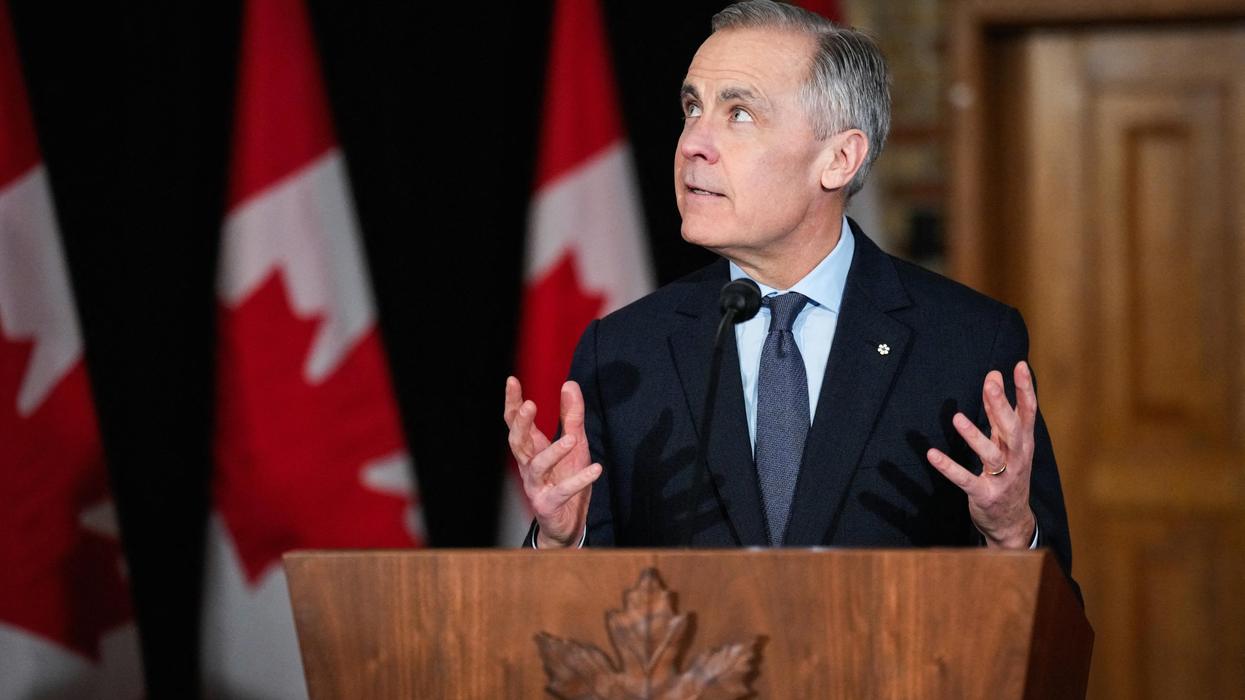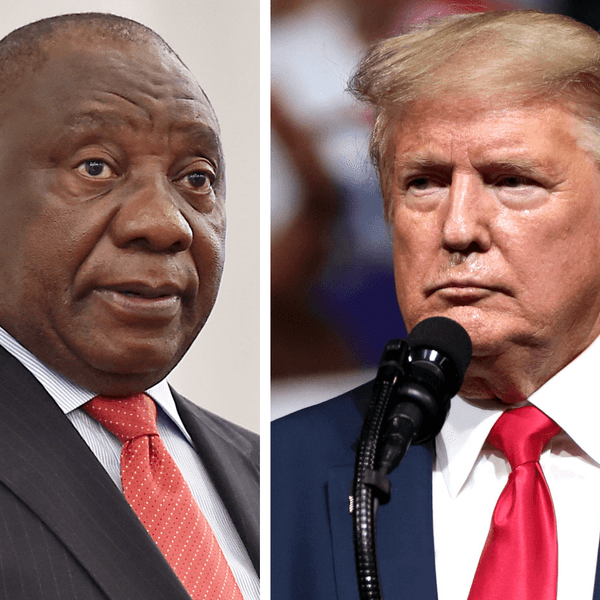Now that Israeli Prime Minister Benjamin Netanyahu has reached an agreement to extend his time in office, the prospect of unilateral Israeli annexation of large chunks of the West Bank has become more immediate. On Monday, the United States Department of State reaffirmed that it was prepared to recognize Israel’s annexation of West Bank territory “in the context of the Government of Israel agreeing to negotiate with the Palestinians along the lines set forth in President Trump’s Vision.”
In other words, all Israel must do is agree to negotiate, and it can annex most of the territory it wants, cementing the demise of the “two-state solution” as the only diplomatic option for resolving Israel’s occupation of the Palestinians and denial of their rights. As a result, even some of the most devoted two-state supporters are suggesting that the question of alternatives to two states must be explored.
Several such advocates participated in a panel discussion Monday hosted by the Center for American Progress (CAP). In an event titled, “What’s Next for U.S. Policy in the Middle East?” CAP presented a grim assessment of the near future, where annexation is virtually inevitable, with unpredictable, but probably very negative, results.
The panelists included Ghaith al-Omari, a former adviser to the Palestinian Authority and currently a senior fellow at the staunchly pro-Israel Washington Institute for Near East Policy (WINEP); Daniel Shapiro, former U.S. Ambassador to Israel and currently a senior fellow at the Institute for National Security Studies in Israel (INSS); and CAP’s executive vice president and former Clinton and Obama administration official, Mara Rudman.
Shapiro described a difficult tightrope for Democrats. “I expect Democrats to speak to these issues (of annexation),” he said. “Vice President Biden did that at AIPAC, where he spoke of his support for Israel and opposition to annexation. I expect the Democratic platform to speak to a strong commitment to the U.S.-Israel partnership.” He also envisions a Democratic platform committed to a two-state solution, to the creation of a Palestinian state, and to opposing unilateral steps by “both sides.”
Rudman echoed Shapiro’s view. “I would say that the United States has an interest in a secure and sustainable Israel,” she said. “And we have traditionally seen that as [an Israel] that has a majority Jewish population and is a democracy.”
These are entirely traditional views, which necessitate opposition to annexation, but are focused on pursuing a goal that may no longer be feasible. Coming from figures like Shapiro and Rudman, they illustrate the desperation of those whose priority is maintaining a Jewish ethnocracy but who want to find a way to do so that is consistent with broad democratic principles. It is an inherent contradiction that has always plagued efforts by Israelis and supporters to construct a state that is, simultaneously, democratic and Jewish. Historically, when Jewish nationalism and liberal values have come into conflict, nationalism has usually triumphed, as the Israeli scholar Ze’ev Sternhell repeatedly demonstrated.
But while that tension has been a permanent feature of the policy debate around Israel and Palestine, the Netanyahu-Trump axis has made it clear that, at least in the short term, there is no possibility of a two-state solution. Rudman acknowledged as much, saying, “We need to meet people where they are… I have big hesitations in putting forth any sort of two-state [vision], because that looks impossible from the ground. We have to figure out what can be seen as realistic to Palestinians and Israelis and be open to various configurations as to what that might be.”
Shapiro has come to a similar conclusion. He pointed to his recent contribution to a report by the centrist Israel Policy Forum that explores a list of alternatives to the two-state solution. As he put it in the forward for that report, “[T]he lack of a serious study of options other than a two-state solution has been a gap that leaves us uninformed about how those outcomes might unfold, ill-equipped to influence their direction, and unprepared for the new reality they will create.”
But at the CAP panel, Shapiro posited that two states remains the only satisfactory solution. “If it’s not going to possible to (sustain a) Jewish and democratic state …we have to explore alternatives. I helped work on an Israel Policy Forum report scoring alternatives to a two-state solution against a number of criteria. All of them were worse than two states, but we need to understand the alternatives and how we would try to protect and preserve our (American) interest in each. We must prepare for what that reality might look like. Since they are all bad, it might help reinvigorate support for two states.”
Distinct from Shapiro and Rudman, al-Omari’s two-state approach is rooted not in the primacy of a Jewish state, but in the heavy investment pro-American Arab leaders, especially the Palestine Liberation Organization (PLO) through the Palestinian Authority (PA), have made in the theory that diplomacy and partnership, rather than confrontation and violence, would resolve the question of Palestine and enable the Arab world to take full advantage of partnership with Israel.
In that vein, al-Omari noted the extreme threat to that track posed by annexation. “No Arab leader believes any diplomacy is going to get anywhere, so I don’t expect any of them to spend political capital on a process they ultimately believe is not going to go anywhere, he said. “Arab leaders will play for time, to avoid looking like a new [American] president is more opposed to annexation than they are.”
Most Arab leaders, al-Omari added, will try to strike a balance between maintaining that image and avoiding offending the Trump administration. He pointed out that the PLO has bet on the idea that diplomacy will produce liberation. If that is proven wrong, he said, the underpinnings of their whole project will disappear and that will mean the end of the secular-nationalist Palestinian movement. “That will be a godsend for Hamas, who will say it proves that diplomacy doesn’t work, only violence does,” al-Omari concluded.
With the Trump administration repeatedly stating its support for annexation, that outcome is inevitable. Two-state advocates like these panelists recognize that annexation will complicate liberal support for Israel and will lead to more momentum for the movement for Palestinian rights, in whatever political configuration. Shapiro, Rudman, and al-Omari all expressed deep concerns, but also all clearly remain hopeful that even this dire situation can be steered back toward a two-state outcome.
Yet the fact that even this group acknowledges that alternatives must be explored is a testament not only to the failure of the two-state solution, but to the opportunity in this moment to re-orient the diplomatic framework around the issue. It is not and has never been impossible to approach the issue of Israel-Palestine from a framework of equal rights that embraces, rather than ignores, the strong national movements of both Israeli Jews and Palestinian Arabs. That approach can lead to a future of equality and peace that the unequal compromises demanded by the two-state solution envisioned in the Oslo peace process could never deliver.
















